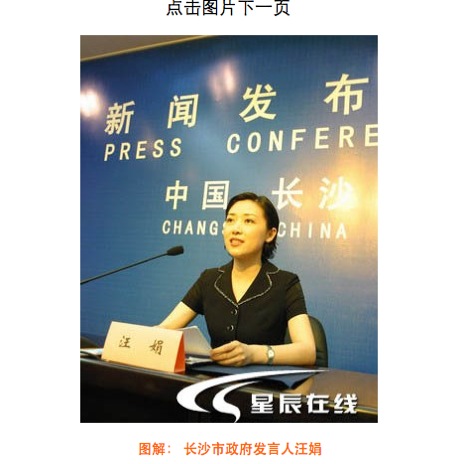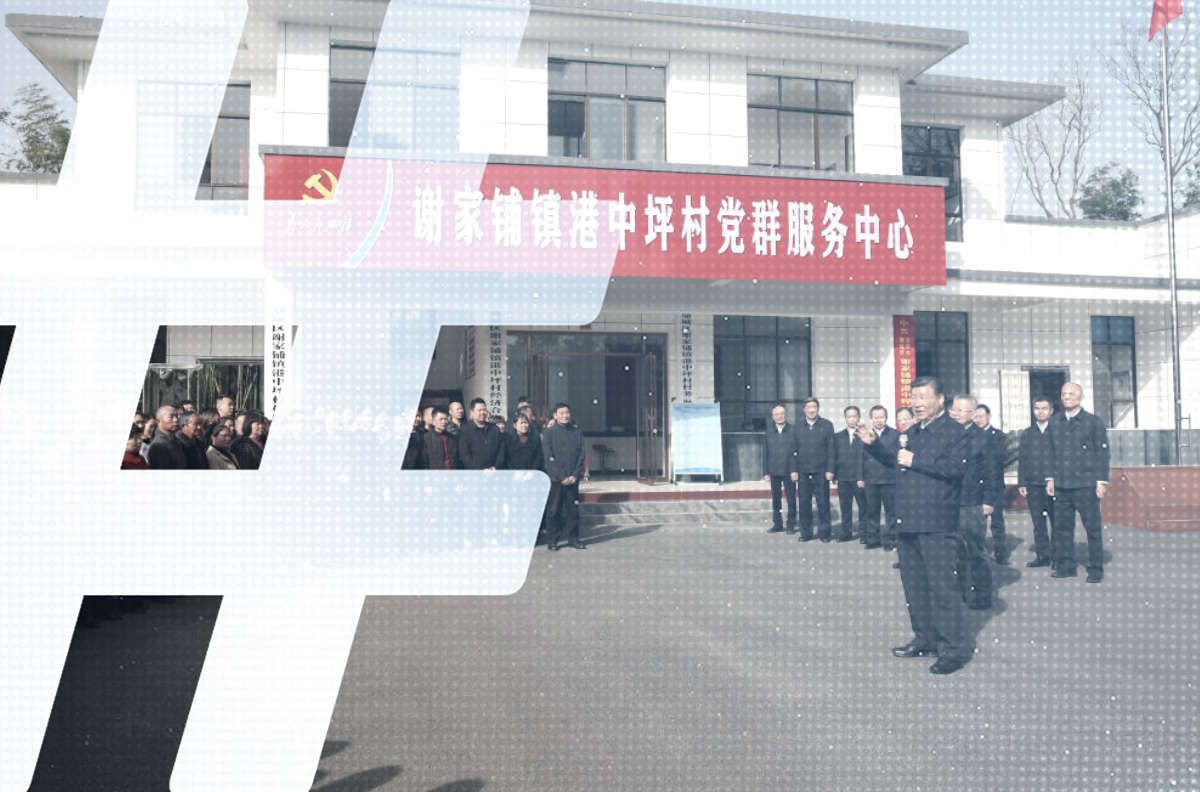Headlines and Hashtags
Why should state enterprises "channel" public opinion?
By David Bandurski — We wrote last month at CMP about how Hu Jintao’s policy of active agenda-setting and “public opinion channeling” — what we’ve termed Control 2.0 — has enshrined the notion of public opinion as crisis. In other words, party leaders often approach real crises of public interest as public relations challenges. On the surface, at least, they seem less concerned with addressing real social problems, and more concerned with convincing everyone these problems do not exist.
In a piece posted last week at the website Oeeee.com (奥一), writer Xiao Hanjie (肖汉杰) argued along similar lines after Huang Danhua (黄丹华), vice-director of China’s State-Owned Assets Supervision and Administration Commission of the State Council encouraged state-owned enterprises to set up press offices to combat “negative news.”

[ABOVE: Knocking the news dead: a government spokeswoman for the city of Changsha is voted one of China’s ten prettiest government spokeswomen.]
Why, Xiao asked, when enterprises should be concerned with identifying and addressing problems in restructuring and operation, was the focus on “channeling public opinion”?
A full translation of Xiao’s editorial follows:
“Public opinion channeling” not as good as “being channeled by public opinion”
September 2, 2009
The vice-director of the State-Owned Assets Supervision and Administration Commission of the State Council, Huang Danhua (黄丹华) said recently that a number of central-level enterprises had been beset with “negative news coverage.” He advised that central-level enterprises set up news release systems and employ official spokespeople in order to improve channeling of public opinion (Beijing Morning Post, September 1, 2009).
So problems happen, and the reaction is not to establish supervision mechanisms to look into their own long-established bad practices. No, instead they set up news release structures so they can “channel public opinion.” So it’s as though they assume when the bells go off that the problem doesn’t lie in the system and in their own work, but rather in the fact that there are no spokespeople to carry out public opinion channeling.
Channeling public opinion? Isn’t it more to the point to say they dread public opinion? They say they channel public opinion “in order to create a favorable public opinion environment for the reform of state-owned enterprises.” I disagree with this completely . . . Public opinion can reflect on advantages and disadvantages, and so it can assist central-level enterprises in assessing their own faults and strengths. Why, then, would you attempt to channel public opinion, twisting its original purpose and the spirit of free criticism? And in a false public opinion environment, how are central-level enterprises supposed to assess their own advantages and disadvantages?
A French writer once wrote that “without the freedom to criticize, praise is utterly worthless.” This could no doubt be taken as a jab at the idea that central-level enterprises should “channel public opinion.” Public opinion channeling is about releasing “positive news” and avoiding “negative news,” about talking up political achievements and playing down problems. This process affects the ability of the public to really understand the facts and come to their own judgments, and ultimately it does harm to the public’s freedom of expression. If we begin to see public opinion turning very kind in favor of state-owned enterprises, what meaning is there in that?
What’s more, the “tactic” of public opinion channeling is generally about not publicly airing news and information and the voices of public opinion, about letting the public see only those things that are “praiseworthy.” This is a disservice to the factual nature of the news, and an invasion of the public’s right to know. The principals of journalism tell us that the news should convey comprehensive and objective facts. The people have a right to know the full story, and they have a right to freely express their opinions about news fact.
“Public opinion channeling” is good for problem avoidance, but it cannot resolve problems that are objectively there. How much better it would be to channelled [in our actions] by public opinion, first listening to what public opinion is telling us, then promoting those things that are beneficial while abolishing those things that are harmful . . .
Along with the development of the Internet and other new media, as speech is becoming freer by the day, “public opinion channeling” is not a reasonable method, and is not suited to the information spirit of the age. As for the “negative news” facing public institutions and state enterprises, the urgent priority should be to accept public opinion and criticism, seeking out the problems that exist at the institutional and management level and making changes. The thought should not be with how to lead and channel public opinion, allowing the rot to take root inside our enterprises.
[Posted by David Bandurski, September 6, 2009, 8:57am HK]






















